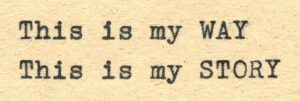
Coaching is a lifestyle, not just a profession. What initially drew me to this field wasn’t a structured methodology, but something far more fundamental—the joy of unpredictable, genuine connection that happens when we set aside our need to be the expert.
When we show up wanting to be surprised by life, not just by coaching conversations, something transformative happens. This mindset extends far beyond formal coaching sessions into how we navigate all our relationships and challenges.
There’s a remarkable shift that occurs when we decide not to position ourselves as the authority in a room. Instead of showing up with answers, we arrive with questions: What can I learn here? What might surprise me? What could catch me off guard? This curiosity creates space for genuine discovery.
This approach relates to that age-old choice between being right or being happy. In conversations with loved ones, letting go of our need to demonstrate expertise changes everything. Whether navigating a disagreement with a partner or a difficult discussion with a friend, openness rather than certainty opens pathways to deeper understanding.
The beginner’s mind approach serves us particularly well during difficult times by removing the pressure to already have all the answers. When we admit we don’t know everything—even in areas where we have considerable experience—we paradoxically become more receptive to finding meaningful solutions.
What makes this way of being so powerful is its beautiful simplicity. There’s something profoundly refreshing about embracing the unknown and allowing ourselves to be surprised by what emerges when we don’t attempt to control the outcome.
This quality of conversation, that can’t always be clearly defined but is unmistakable when experienced, brings a richness to our interactions that formulaic approaches simply can’t match. It’s about trusting the process rather than forcing a predetermined direction.
By bringing this openness into all areas of life—our relationships, work, and personal growth—we remain perpetual learners. We create space for new insights precisely because we don’t convince ourselves that we already know everything there is to know.
So I invite you to experiment with this approach today. Set aside what you think you know, be genuinely open to being surprised, and see what you might discover when you’re not trying to demonstrate your expertise. In that openness lies the continuous possibility of transformation—not just in coaching, but in everything we experience.



